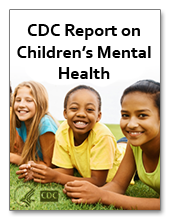Data and Statistics
 The following websites provide information and tools related to child development data.
The following websites provide information and tools related to child development data.
Kids Count U.S. Census Data
KIDS COUNT is a national and state-by-state project of the Casey Foundation to track the status of children in the United States. Data available for analysis include family and child demographics, and measures of child educational, social, economic, and physical well-being.
National Early Intervention Longitudinal Study (NEILS)
NEILS is a longitudinal study that is following a nationally representative sample of more than 3,338 children with disabilities or at risk for disabilities and their families. Children between birth and 31 months of age, who began intervention services for the first time between September 1997 and November 1998, are included in the study sample. Measures of child characteristics, disability identification and health status, and child functioning are included for analysis.
National Survey of America’s Families (NSAF)
The National Survey of America’s Families (NSAF) provides quantitative measures of child, adult and family well-being in America, with an emphasis on persons in low-income families. The survey gathers data on economic, health and social characteristics of children and families in order to estimate well-being. Data were collected in 1997, 1999, and 2002. The most recent data collection includes information on more than 100,000 people.
National Survey of Children with Special Health Care Needs (NSCSHCN)
The NSCSHCN assesses the prevalence and impact of special health care needs among U.S. children. Interviews were conducted with a parent or guardian of 750 CSHCN in each State and DC, and a nationally representative comparison sample of approximately 5,000 children without special health care needs. Measures include: extent to which children with special health care needs (CSHCN) have medical homes, adequate health insurance, and access to needed services; as well as functional difficulties, care coordination, satisfaction with care, and transition services.
National Survey of Children’s Health (NSCH)
The NSCH examines the physical and emotional health of children ages 0-17 years of age. The survey provides data to estimate national and state-level prevalence of physical, emotional, and behavioral child health indicators as well as information on the child’s family context and neighborhood environment. Data were collected in 2003, 2007, and 2011. Each wave of data collection includes caregiver interviews on approximately 91,000 U.S. children.
National Survey of Early Childhood Health (NSECH)
The NSECH provides national baseline data on pediatric care (and its impact) from the parent’s perspective. Questions focus on the delivery of pediatric care to families with children under 3 years of age and the promotion of young children’s health by families in their homes. Parents of more than 2,000 children were interviewed for this survey between February-July 2000.
National Survey on Drug Use & Health (formerly National Household Survey on Drug Abuse)
The NSDUH is an annual nationwide survey involving interviews with approximately 70,000 randomly selected individuals aged 12 and older. The Survey provides national and state-level data on the use of tobacco, alcohol, illicit drugs (including non-medical use of prescription drugs) and mental health in the United States.
National Health Interview Survey (NHIS)
The National Health Interview Survey (NHIS) has monitored the health of the nation since 1957. The NHIS is a large-scale household interview survey of a statistically representative sample of the U.S. civilian noninstitutionalized population. Interview data are collected on a broad range of health topics including, caregiver reports of child health, mental health and disability status.
National Health and Nutrition Examination Survey (NHANES)
The National Health and Nutrition Examination Survey (NHANES) assesses the health and nutritional status of a nationally representative sample of about 5,000 adults and children in the United States. The survey combines interviews and physical examinations and includes demographic, socioeconomic, dietary, and health-related questions. The examination component consists of medical, dental, and physiological measurements, as well as laboratory tests administered by highly trained medical personnel.
Youth Risk Behavior Surveillance System (YRBSS)
The YRBSS is an ongoing national school-based survey designed to monitor priority health-risk behaviors and the prevalence of obesity and asthma among youth and young adults in grades 9-12 in the U.S. Data were collected from students biennially beginning in 1991. Approximately 16,000 students completed the survey in the most recent data collection wave in 2009.
Data Tools
America’s Children
America’s Children is a report on key national indicators of well-being published annually by the Federal Interagency Forum on Child and Family Statistics. The America’s Children series makes Federal data on children and families available in a nontechnical, easy-to-use format in order to stimulate discussion among data providers, policymakers, and the public.
NCHS Survey Measures Catalog
The Survey Measures Catalog of the National Center on Health Statistics provides an overview of questions about child and adolescent mental health, and functioning and disability in various surveys of the NCHS Data Systems. Some of the survey measures are included in both the mental health section and the functioning and disability section of the catalog.
Inter-University Consortium for Political and Social Research
ICPSR offers more than 500,000 digital files containing social science research data. Disciplines represented include political science, sociology, demography, economics, history, gerontology, criminal justice, public health, foreign policy, terrorism, health and medical care, early education, education, racial and ethnic minorities, psychology, law, substance abuse and mental health, and more.
Highlighted Articles
Key Findings: Parenting Groups – Do They Change How Mothers Think About Parenting?
The Infant Mental Health Journal has published a new study looking at mothers who participated in the Legacy for Children™ parenting group program, and how it affected their views on parenting.
(Published: July 14, 2017)
Key Findings: Treatment of Disruptive Behavior Problems – What Works?
Learn about current evidence on the most effective treatments for behavior problems in children
(Published: May 1, 2017)
Key Findings: Factors Associated with Mental, Behavioral, and Developmental Disorders in Early Childhood.
Learn about family, community and health-care factors related to children’s mental, behavioral or developmental disorder
(Published: March 10, 2016)
Key Findings: Reassessing the approach of the Learn the Signs. Act Early. campaign.
Learn about parents’ responses to the Learn the Signs. Act Early materials
(Published: November 18, 2015)
Key Findings: Screening for Developmental Delays Among Young Children
Only 1 in 5 parents say their child received a developmental screen
(Published September 10, 2014)
Key Findings: Behavioral and Socioemotional Outcomes Through Age 5 of the Legacy for Children™ Parenting Program
Learn how the Legacy program affected children
(Published: April 18, 2013)
Helping Children Thrive in Rural Communities
New data on children with mental, behavioral, and developmental disorders in rural and urban areas.
(Published: March 16, 2017)
Parenting Matters
Parents are among the most important people in the lives of young children.
(Published: January 4, 2017)
Supporting Behavioral Health
Learn what CDC doing to support behavioral health services for children who need them.
(Published: May 4, 2016)
Improving Children’s Behavioral Health
Learn what CDC is doing about gaps in behavioral treatment for children.
(Published: May 4, 2015)
Newborn Screening is Important for Your Baby
Soon after birth, babies born in the United States are checked for certain medical conditions.
(Published: September 14, 2014)
Children’s Mental Health Report
Learn about the CDC report that describes federal activities that track U.S. children’s mental disorders.
(Published: May 16, 2013)
- Page last reviewed: February 1, 2017
- Page last updated: January 3, 2017
- Content source:
- Division of Human Development and Disabilities, National Center on Birth Defects and Developmental Disabilities, Centers for Disease Control and Prevention



 ShareCompartir
ShareCompartir